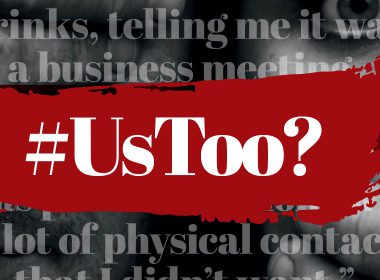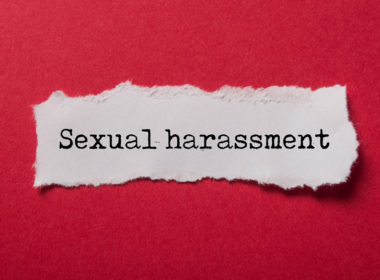Innovations that enable employees to anonymously report workplace sexual harassment have been lauded as potential game-changers by the International Bar Association, in a report investigating the benefits of “trust technology” in legal workplaces.
The paper on Innovation-Led Cultural Change outlines the traditional mechanisms and limitations of law firm reporting models, which have generally required employees to speak up in person or via email or phone to human resources staff.
It comes off the back of the IBA’s landmark 2019 Us Too? report on sexual harassment and bullying in the legal profession, which found one in three female lawyers and one in 14 male lawyers had been sexually harassed at work, and that 75 per cent of victims would never report the harassment.
The new IBA report asserts that products like Talk to Spot, an artificial intelligence software that can gather sensitive information from employees and feed it anonymously through to human resources staff, are giving employees more confidence to report misconduct. Mobile apps like Vault Platform simplify the process of reporting incidents, and encrypted platforms like Elker could make reports and case management fully anonymous.
“The dearth of reporting incidents of workplace misconduct is sometimes attributed to ‘first-mover disadvantage’: targets do not want to be the first one to come forward for fear of retribution or being dismissed as fabricating the incident,” the report reads.
“If the lesson from #MeToo is safety in numbers, then technology which makes use of information escrows may result in higher rates of reporting and engagement.”
If the lesson from #MeToo is safety in numbers, then technology which makes use of information escrows may result in higher rates of reporting and engagement.
– International Bar Association Legal Policy and Research Unit
The report does not discuss the impacts of COVID-19 and whether working from home amid the pandemic has seen an increase or stifling of workplace harassment claims. Given the unprecedented nature of legal practice changes over the past year, it appears research is still limited on that front. Indeed, the most recent Australia-wide data on workplace harassment came on 5 March 2020 with publication of the Australian Human Rights Commission’s Respect@Work report, two weeks before the national COVID-19 lockdown.
One survey conducted in the UK by Rights of Women found there had been no increase in harassment behaviour amid the pandemic, but that remote work was making it more difficult for victims to report and seek justice. Half of women being subjected to workplace sexual harassment said it had transitioned to take place remotely, with perpetrators finding new ways to abuse their victims via technology. Experts from the Monash University Business School also told The Sydney Morning Herald in June that working from home could reduce opportunities for incidental observation of inappropriate behaviour and early intervention by supervisors or bystanders.
“Effectively addressing inappropriate behaviour within law requires a jigsaw puzzle approach,” said Kieran Pender, a co-author of the IBA report and Senior Legal Advisor who led the Us Too? campaign by the IBA throughout 2019.
“There is no one solution, no silver bullet. Instead, we require a range of innovative solutions that can change the culture that facilitates bullying and sexual harassment and empower targets to speak up when it does occur. Trust Tech is one piece of the puzzle – and an innovative and exciting puzzle piece at that.”
The report recommended Trust Tech could be an effective tool to add to law firms’ arsenals in the battle to eradicate sexual harassment but that it would not be a cure-all panacea.




